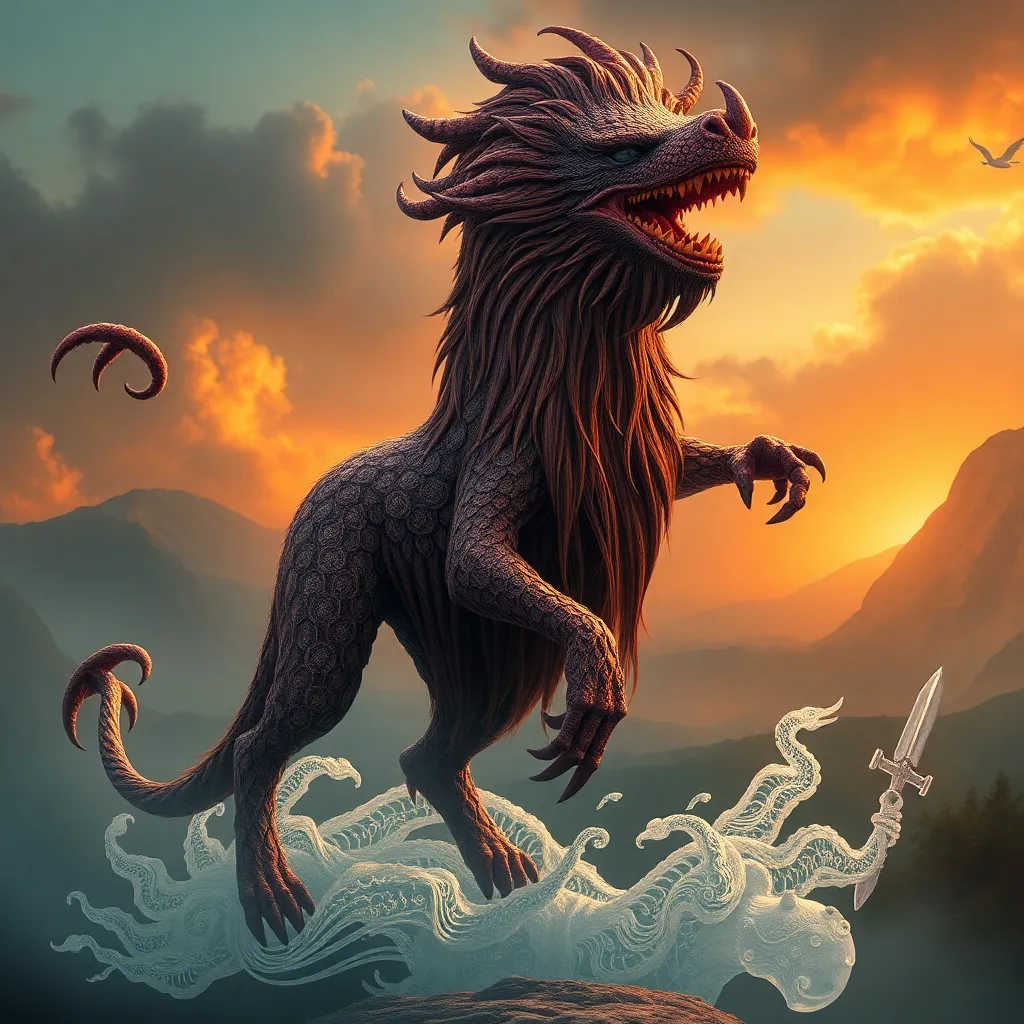The Role of Mythological Creatures in Greek Mythological Themes
I. Introduction
Mythological creatures are beings that inhabit the realms of mythology, embodying various aspects of the human experience and the natural world. In Greek mythology, these creatures play a crucial role, serving not only as fascinating elements of stories but also as symbols that convey deeper meanings and themes. This article explores the significance of mythological creatures in Greek mythology, examining their historical context, types, symbolism, narrative roles, artistic influence, and their comparative analysis with other mythologies.
II. Historical Context of Greek Mythology
The origins of Greek mythology can be traced back to the early days of ancient Greece, with roots in oral traditions that spanned centuries. As these stories evolved, they became intertwined with the religious and cultural practices of the Greek people, providing explanations for natural phenomena, human behavior, and social order.
Mythology was essential to Greek culture, serving not only as entertainment but also as an educational tool that conveyed moral lessons and societal values. The creatures of Greek mythology reflect the values and fears of ancient Greek society, often embodying the complexities of human emotion and the mysteries of the world.
The relationship between mythological creatures and Greek society is evident in their representation of various societal roles, including the gods who ruled the heavens, the heroes who exemplified human strength and virtue, and the monsters that represented chaos and disorder.
III. Types of Mythological Creatures
Greek mythology is rich with a diverse array of creatures. Some of the most notable categories include:
- Gods and Goddesses: Deities such as Zeus, the king of the gods, and Athena, the goddess of wisdom, embody various aspects of life and the cosmos.
- Monsters: Fearsome beings like the Minotaur, a creature with the body of a man and the head of a bull, and the Cyclops, a one-eyed giant, symbolize chaos and the unknown.
- Heroes and Demigods: Figures like Hercules and Perseus represent the ideal human traits, showcasing bravery, strength, and cleverness in their quests.
- Nature Spirits and Mythical Beings: Nymphs, who personify elements of nature, and satyrs, half-human and half-goat beings, illustrate the connection between humanity and the natural world.
IV. Symbolism and Themes Associated with Creatures
Mythological creatures in Greek mythology carry rich symbolism and represent various themes, including:
- Representation of Human Traits and Emotions: Many creatures embody specific human traits, such as the cunning of the fox or the strength of a lion, reflecting the complexities of human nature.
- Themes of Power, Chaos, and Order: Creatures often symbolize the struggle between order and chaos, with gods representing order and monsters representing chaos.
- The Duality of Good and Evil: Creatures can embody both positive and negative traits, illustrating the dual nature of existence and moral ambiguity.
V. Mythological Creatures as Narrative Devices
In the narratives of Greek mythology, creatures serve several critical functions:
- Role in Plot Development and Conflict: Mythical creatures often serve as antagonists or obstacles that heroes must overcome, driving the plot forward.
- Creatures as Catalysts for Character Growth: Encounters with creatures challenge heroes, forcing them to confront their fears and grow as individuals.
- Use of Creatures to Convey Moral Lessons: The challenges posed by mythological creatures often reflect moral dilemmas, teaching lessons about virtue, bravery, and wisdom.
VI. The Influence of Mythological Creatures on Art and Literature
The impact of mythological creatures extends beyond storytelling into the realms of art and literature. In ancient Greece, these creatures were commonly depicted in various art forms:
- Depictions in Ancient Greek Art: Creatures such as centaurs and sirens were often illustrated in pottery, sculpture, and frescoes, showcasing their significance in Greek culture.
- Influence on Later Literature and Storytelling: The themes and characters of Greek mythology have inspired countless works of literature, from ancient plays to modern novels.
- Modern Interpretations and Adaptations: Today, mythological creatures continue to capture the imagination, appearing in films, video games, and popular literature, demonstrating their timeless appeal.
VII. Comparative Analysis with Other Mythologies
When examining mythological creatures across cultures, intriguing similarities and differences emerge:
- Similarities and Differences with Creatures in Roman Mythology: Many Greek creatures were adapted into Roman mythology, but with variations in attributes and stories.
- Cross-Cultural Parallels in Mythology: Creatures in Greek mythology share themes with those in Norse and Egyptian mythologies, such as dragons symbolizing chaos or guardians of treasures.
- The Universal Themes of Mythological Creatures: Across cultures, creatures often represent universal themes of human experience, such as the struggle between good and evil, the quest for knowledge, and the exploration of the unknown.
VIII. Conclusion
The significance of mythological creatures in Greek mythology is profound, as they embody themes and values that resonate through time. These creatures not only enhance the narratives of ancient tales but also continue to influence modern culture and society. Exploring the rich tapestry of Greek mythology allows us to gain insights into human nature and the complexities of existence, encouraging a deeper appreciation for these timeless stories.
As we delve into the world of Greek mythology, we uncover not just the stories of gods and monsters, but also the enduring legacy they leave on our understanding of ourselves and the world around us. The exploration of mythological creatures remains a vital aspect of cultural study, inviting us to reflect on the universal themes that connect us all.




